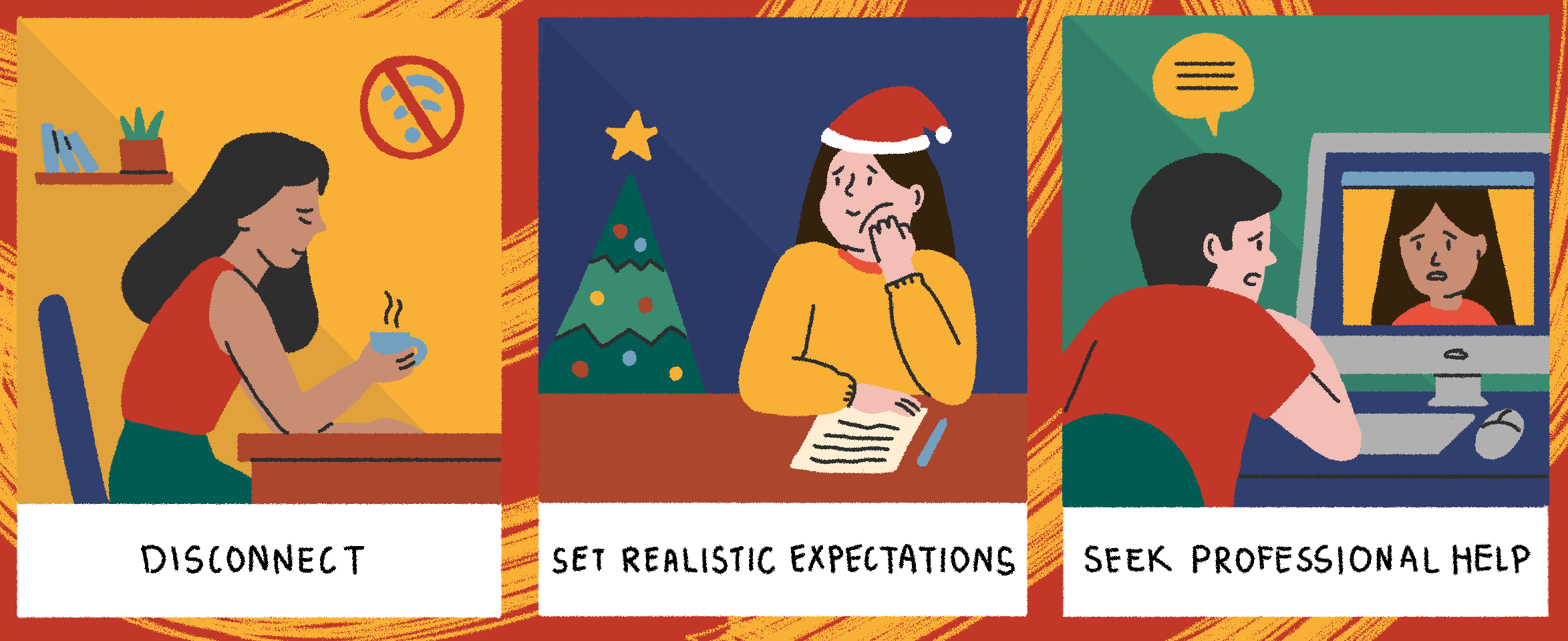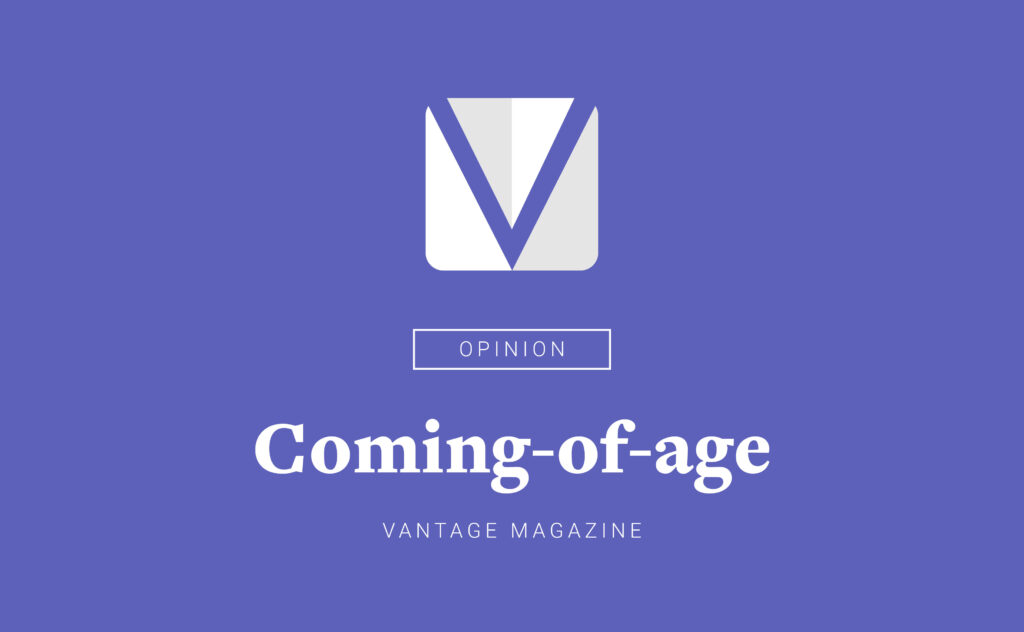For Filipinos, the Christmas spirit is measured by the preparations that begin as early as September. However, the expectations of a perfectly planned holiday can cause immense pressure for anyone. As we schedule family Zoom calls, scale down Noche Buena plans, and figure out how to exchange gifts online, we remember that mental health should still be valued—especially during this festive season.
Since the lockdown, there has been a significant increase in Filipinos experiencing depression. Ateneans and other students also have to juggle online schoolwork on top of all that. These quarantined holidays may even be more challenging, particularly because of the pandemic-induced isolation that contrasts the closeness that is usually felt during this time of the year.
However, know that it’s okay to feel blue in the season of red and green! What’s more important is identifying and recognizing what these feelings are. Emotions that can be easily brushed off because of the holiday stress could be an indicator of a more pressing mental health concern.
Drawing the line
The stress and anxiety that one feels during Christmas time could either be the holiday blues or the Seasonal Affective Disorder (SAD), since these two are terms often interchanged. Jeemon Bacaoco, Associate Psychologist from Gray Matters Psychological Center, says that it’s important to differentiate the two.
“The holiday blues [are a] result of a particular tradition. But for [SAD], it’s a disorder […] caused by changes in the season,” he says. There may be a variety of reasons that explain why negative feelings surface during Christmas time—it could stem from the pressure to celebrate, or even the reminder of losing a loved one.
However, people mustn’t dismiss these fleeting holiday blues. Bacaoco cautions that if these emotions extend past the holidays, people should consider seeking professional help. Sometimes, the pain may even become unbearable to the point that it hinders accomplishing daily tasks.
The psychological consequences of suppressing emotions are extreme enough to have harm one’s body and mind. For example, a student may struggle with committing to their responsibilities if they encounter difficulties in their everyday routines. There are many expectations asked of them during this time of the year, especially for those having their finals after the holidays. With stress being at an all-time high, these requirements may affect the student’s well-being.
While Ateneo Psyche President Kristinne Limos believes that while receiving professional treatment is important, being brave enough to get help may not be as easy. The courage to admit vulnerability arrives when one moves past the mental health stigma. “It’s human to ask for help. We’re social beings,” Limos adds, acknowledging that reaching out isn’t a sign of weakness. However, the person must first be ready to accept support before receiving it.
Holiday remedies
Various facilities are equipped to help those with mental health concerns. Limos even points out that the Loyola Schools Office of Guidance and Counseling has made efforts to reach the students through initiatives like e-consultations, while the Ateneo Bulatao Center also provided online services.
Limos believes that being constantly online may take an emotional toll on anyone because the boundaries between work and home have become blurred. She advises her fellow students to “take some time off the screen, [and] disconnect.”All things considered, she also reminds that “[students] can’t discount the amount of effort that they’ve put into this year.”
Bacaoco shares advice for those who need to put on a happy face for their relatives: “It’s okay to say ‘No.’ Make sure your expectations of the holidays are realistic, so that it’s easier to manage your emotions.”
Letting go of tradition
There are many ways to handle our negative feelings, but we should acknowledge that our emotions during this season are valid. Remember, too, that professional help is always an option for anyone who needs it. In this socially-distanced Christmas, the best gift for ourselves is being aware of our emotions while facing what we’re feeling head-on.






